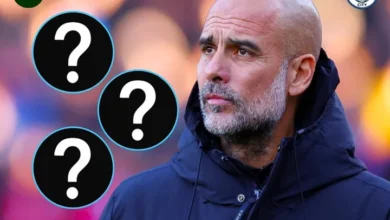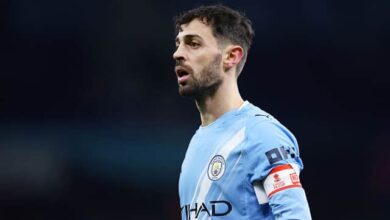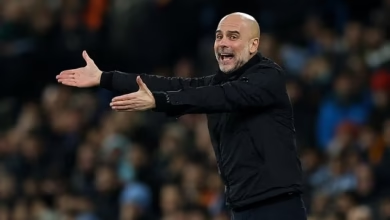Arsenal Complete Marquinhos Transfer: A Comprehensive Analysis of the Club’s Latest Departure Under Andrea Berta’s Direction

Arsenal Football Club has officially confirmed the completion of a significant transfer that marks another chapter in their ongoing squad restructuring efforts. The North London club has finalized the permanent departure of Brazilian winger Marquinhos to Cruzeiro, bringing to an end what can only be described as a challenging and ultimately unsuccessful stint in English football for the young South American talent.
This transfer represents more than just another player departure; it symbolizes Arsenal’s pragmatic approach to squad management under their current leadership structure, particularly with sporting director Andrea Berta now taking charge of transfer operations. The deal also highlights the complexities of international player development and the challenges faced by young talents attempting to establish themselves in one of the world’s most competitive football leagues.
Marquinhos arrived at Arsenal in the summer of 2022 as a promising 19-year-old winger from São Paulo, one of Brazil’s most prestigious football clubs. His signing was part of Arsenal’s broader strategy to identify and develop young talent from South America, a region that has historically produced some of the world’s finest footballers. The Brazilian possessed the technical skills, pace, and flair that are characteristic of wingers from his homeland, qualities that initially excited Arsenal’s coaching staff and supporters alike.
Standing at average height but possessing exceptional dribbling ability and close ball control, Marquinhos was viewed as a player who could potentially develop into a significant asset for Arsenal’s future. His versatility across the front line, capable of operating on either flank or even through the center when required, made him an attractive proposition for a club looking to build depth and flexibility in their attacking options.
However, the transition from Brazilian football to the Premier League proved to be more challenging than anticipated. The physical demands of English football, combined with the tactical sophistication required at the highest level, presented obstacles that the young Brazilian struggled to overcome consistently. This is not uncommon for South American players making their first foray into European football, particularly in the Premier League, where the pace and intensity can be overwhelming for newcomers.
During his time at the Emirates Stadium, Marquinhos managed to make only six first-team appearances for Arsenal, a statistic that tells the story of his struggle to break into Mikel Arteta’s plans. These limited opportunities came across various competitions, with the majority occurring during Arsenal’s Europa League campaign rather than in Premier League fixtures, indicating that he was primarily viewed as a squad player rather than a regular starter.
His solitary goal for Arsenal came in a Europa League encounter against FC Zurich in September 2022, a moment that briefly highlighted his potential and suggested that with time and development, he might establish himself as a valuable squad member. The goal demonstrated his ability to find the net at senior level and provided a glimpse of the attacking threat he could pose when given the opportunity to express himself on the pitch.
Despite this promising moment, Marquinhos found it increasingly difficult to secure regular playing time as Arsenal’s squad evolved and strengthened. The club’s investment in established talents and the emergence of other young players ahead of him in the pecking order meant that opportunities became increasingly scarce. This situation is unfortunately common in modern football, where the gap between youth potential and first-team reality can prove insurmountable for many promising players.
The competitive nature of Arsenal’s attacking positions, with established international players occupying the wide areas and central attacking roles, meant that Marquinhos faced an uphill battle to establish himself. Players of his profile often require consistent game time to develop their decision-making, physical conditioning, and tactical understanding, luxuries that are rarely afforded at clubs with Arsenal’s ambitions and expectations.
Recognizing that Marquinhos needed regular playing time to continue his development, Arsenal arranged a loan spell that would see him return to familiar surroundings in Brazilian football. The second half of the previous season saw him join Cruzeiro, one of Brazil’s most historic and successful clubs, where he would have the opportunity to rediscover his form and confidence in a more familiar environment.
This loan arrangement proved to be mutually beneficial, allowing Marquinhos to gain valuable playing experience while giving Arsenal the opportunity to assess his development from afar. During his time with Cruzeiro, he made eighteen appearances, a significant increase from his limited opportunities at Arsenal. More importantly, he managed to contribute directly to his team’s attacking output, scoring one goal and providing one assist during his stint.
These statistics, while modest, represented a positive step forward for a player who had struggled to make an impact in English football. The goal and assist demonstrated that he retained his attacking instincts and technical ability, qualities that had originally attracted Arsenal to sign him from São Paulo. The loan spell also allowed him to readjust to the style of play and tactical approach more common in South American football, where individual flair and creativity are often given greater freedom to flourish.
The success of this loan arrangement ultimately influenced both clubs’ decision-making regarding Marquinhos’ future. For Cruzeiro, his contributions during the loan period were sufficient to convince them that he could be a valuable long-term addition to their squad. For Arsenal, the loan provided clarity about the player’s likely trajectory and helped inform their decision about whether to persevere with his development or seek a permanent solution.
The completion of Marquinhos’ permanent transfer to Cruzeiro represents one of the first significant moves under the guidance of Andrea Berta, Arsenal’s sporting director who has taken charge of the club’s transfer operations. Berta’s approach to this situation demonstrates a pragmatic understanding of player development and market dynamics that could set the tone for future transfer business.
Rather than allowing the original loan arrangement to run its course until the end of the year as initially planned, Berta recognized an opportunity to secure a permanent solution that would benefit all parties involved. This proactive approach suggests a more sophisticated understanding of player asset management and the importance of making decisive moves when market conditions are favorable.
The decision to convert the loan into a permanent transfer also reflects Arsenal’s current squad planning philosophy. With limited squad spaces available and the need to comply with various financial regulations, the club has been forced to make difficult decisions about which players to retain and develop versus those who might be better served pursuing opportunities elsewhere.
Berta’s handling of this situation suggests that Arsenal under his leadership will be more decisive in their approach to player exits, recognizing that sometimes the kindest and most practical solution for all parties is to facilitate permanent moves rather than prolonging uncertain situations. This approach could prove beneficial for both player welfare and the club’s financial planning.
From a financial perspective, the Marquinhos transfer represents a reasonable outcome for Arsenal given the circumstances. Reports suggest that the club will recover most of the fee they originally paid to São Paulo when signing the player in 2022, which represents effective asset management given his limited impact at first-team level.
This recovery of investment is particularly significant in the current football financial landscape, where clubs are under increasing pressure to demonstrate prudent management of their resources. The ability to recoup the majority of a player’s transfer fee after three years, despite limited success, suggests that Arsenal’s initial valuation was reasonable and that they have managed to maintain the player’s market value through strategic loan arrangements.
The Brazilian market has proven to be receptive to players returning from European experiences, particularly when those players can demonstrate that they have maintained their technical abilities and gained valuable experience abroad. Marquinhos’ case fits this profile perfectly, as his time at Arsenal, while not yielding regular first-team football, still represents valuable exposure to European training methods, tactical approaches, and professional standards.
For Cruzeiro, the permanent acquisition of Marquinhos represents an investment in a player who has already demonstrated his ability to contribute to their team during his loan spell. The club’s willingness to commit to a permanent deal suggests confidence in his potential to develop further and become a more significant contributor to their attacking play.
The departure of Marquinhos should be viewed within the broader context of Arsenal’s squad evolution under Mikel Arteta and the club’s renewed focus on competing at the highest level of English and European football. The Gunners have undergone significant transformation in recent years, with substantial investment in established talents and a more selective approach to youth development.
This evolution has inevitably meant that some players who might have been given more time and opportunities in previous eras have found their pathways to first-team football blocked by higher-quality alternatives. The competitive nature of modern football, particularly at clubs with Arsenal’s ambitions, means that patience with developing players has become a luxury that few can afford.
The club’s recent transfer activity has demonstrated a preference for players who can make immediate impacts rather than long-term development projects. This shift in philosophy, while pragmatic from a competitive standpoint, does mean that players like Marquinhos face increasingly difficult odds when attempting to establish themselves in the first team.
However, Arsenal’s approach to facilitating his permanent move to Cruzeiro demonstrates that the club remains committed to finding appropriate solutions for players who may not fit into their immediate plans. This approach benefits both the player, who gains the opportunity to continue his career development, and the club, which can recover investment and free up squad spaces for other priorities.
The Marquinhos transfer also highlights the continuing connections between Arsenal and Brazilian football, relationships that could prove valuable for future recruitment and player development strategies. The successful completion of this deal, combined with the positive experience during his loan spell, could enhance Arsenal’s reputation among Brazilian clubs and players as a destination that handles player welfare and career development responsibly.
Interestingly, Marquinhos’ move to Cruzeiro potentially sets up a future reunion with another former Arsenal player, as Jorginho has recently been confirmed as joining Flamengo, Cruzeiro’s rivals in the Brazilian championship. This convergence of former Arsenal players in Brazilian football creates intriguing subplot narratives while also demonstrating the continued appeal of returning to South American football for players who have gained European experience.
The presence of multiple former Arsenal players in high-profile Brazilian clubs could also create informal scouting networks and relationship-building opportunities that might benefit the Gunners in future transfer windows. These connections often prove valuable when clubs are seeking to identify emerging talents or negotiate complex international transfers.
The Marquinhos case provides several important lessons about player development and the challenges faced by young international talents attempting to establish themselves in competitive European leagues. His experience highlights the importance of timing, opportunity, and the need for clubs to maintain realistic expectations about development trajectories.
For Arsenal, this situation reinforces the need for clear pathway planning when signing young international players. The club must balance the desire to identify and develop promising talents with the practical realities of squad management and competitive pressures. Future signings of similar profiles may benefit from more structured development plans that include specific loan arrangements and performance milestones.
The successful resolution of Marquinhos’ situation also demonstrates the value of maintaining positive relationships with clubs in key markets. Arsenal’s handling of this transfer, ensuring that all parties benefited from the arrangement, could prove valuable for future dealings in the Brazilian market and beyond.
The permanent transfer of Marquinhos from Arsenal to Cruzeiro represents a pragmatic and ultimately successful resolution to a challenging situation. While the Brazilian winger was unable to establish himself as a regular contributor at the Emirates Stadium, the club’s handling of his departure demonstrates professional player management and effective asset recovery.
Under Andrea Berta’s guidance, Arsenal has shown that they can make decisive decisions about player futures while maintaining positive relationships and recovering reasonable value from their investments. This approach bodes well for future transfer business and suggests a more sophisticated understanding of modern squad management requirements.
For Marquinhos, the permanent move to Cruzeiro offers the opportunity to build upon his positive loan experience and establish himself as a key contributor to one of Brazil’s most prestigious clubs. His journey from São Paulo to Arsenal and back to Brazilian football illustrates both the challenges and opportunities that exist in modern international player development.
The transfer ultimately represents a positive outcome for all parties involved: Arsenal recovers its investment and frees up squad space, Cruzeiro secures a player who has already demonstrated his value to their team, and Marquinhos gains the stability and opportunity needed to continue his professional development in familiar surroundings. This type of mutually beneficial resolution should serve as a model for how clubs can handle similar situations in the future, demonstrating that successful transfers don’t always require players to succeed at their original destination.
As Arsenal continues its evolution under current leadership, the Marquinhos transfer provides valuable insights into the club’s approach to squad management, player development, and market strategy. The lessons learned from this experience will likely inform future decisions and contribute to the club’s ongoing efforts to build a competitive and sustainable squad capable of achieving their long-term ambitions.














